I meditated every day for a year, and here's how it changed my life
Just 10 minutes of daily meditation in focused silence has more impact than I could have imagined


The practice of meditation conjures up images of someone crossing their legs while sitting on the floor, pinching their fingers together, and saying "om." This nearly convinced me that meditation wouldn't work for me, but meditating every day for a whole year changed my perception of the practice and might be the best decision I've ever made.
I've never been totally comfortable with silence, preferring to listen to music and podcasts with a set of the best workout earbuds to drown out background noises. So the idea of sitting without anything to do for 10 to 15 minutes each day made me feel uneasy, and I worried that it was time better spent being productive elsewhere.
I discovered Headspace, a meditation app, not long after being diagnosed with a chronic illness, a long-term condition with symptoms like chronic pain. This changed my outlook substantially, so I decided to give meditation a go instead of dismissing it. Then again, there are plenty of free sessions on YouTube and Headspace has guided meditations that are easy to try at home.
After downloading the app, I found a comfortable seat at home and started the first session. I went into it thinking that 10 minutes with my eyes closed focusing on my breath would immediately and magically fix everything, leaving behind a calm, relaxing state of mind. But learning how to mediate is an ongoing practice.
My first few attempts with Headspace didn't feel like a success. I was distracted a lot, and I'd continually get lost in thought or start drifting off to sleep. Even when I'd managed to stay awake, there were times I'd noticed the session had ended, and I hadn't listened to the teacher at all. There were 10 free sessions, so I kept going. And then, after six days, everything seemed to fall into place.
Why I started meditating
For me, the main reason I decided to give meditation a shot was to help tackle the agonizing flare-ups of chronic pain and to calm my worried mind. After I became ill, my life changed substantially, and all I could think about was 'what if' scenarios, like what if I didn't ever feel better, or what if I can't work again. Stuck at home, my brain kept tumbling into the future.
I needed to find a way to rejoin the present, focus on the experience of the moment, and what I could do right now. There are a few different styles of meditation, but the most popular is mindfulness meditation. The sessions encourage you to focus on your breath, and although you will get distracted by thoughts, the idea is to learn to let them pass rather than get wrapped up in them.
Get the Fit&Well Newsletter
Start your week with achievable workout ideas, health tips and wellbeing advice in your inbox.
You don't have to be in the throes of life's challenges to benefit, though. People have looked inward for centuries, but it's only recently that studies have uncovered that the structure of our brain changes as we meditate. Even before starting my first session, I'd already come across reams of evidence documenting the positive effects, like how it reduces the physical signs of stress.

I feel less anxious
That sixth session was so transformative because it was the first time I felt the effect of meditating. Like the previous days, I was stressed, anxious, and unwell before sitting down in my chair and putting my headphones on. But I was used to the routine by this point; take some deep breaths, close your eyes, mentally scan how your body feels, and then focus on each breath as it happens.
And for once, my brain didn't get in the way. Or rather, it did, but I was aware of it. I actually understood that our thoughts are separate from our minds for the first time. They all exist within our brains, but thoughts are only temporary, passing by as quickly as they enter your mind. I'd get lost thinking about how much pain I was in or how worried I was and then catch myself.
Before I opened my eyes at the end, I'd had almost a whole 10 minutes where I didn't feel the anxious stabbing pain in my stomach. Nothing had changed, my situation was still the same, but at the same time, everything changed. After that day, worries filled my mind regularly, but the more I meditated, the more I could separate myself from them.
This technique is also why meditation can ease the symptoms of depression, as you're able to decouple from negative thoughts that arise. Scientists have also found that meditation causes structural changes in your brain and deactivates certain areas linked to mind-wandering and unhappiness.
One of my best @Headspace sessions this morning.A peaceful walk through London followed by meditation in one of my favourite places. pic.twitter.com/fszcJANyNRMay 28, 2019
The world feels new again
I've lived in the same area for almost 10 years, so I thought I knew every sight, sound, and smell there was locally. But the truth is, every time I went outside, I wasn't properly looking around, as my mind would start drifting to idle thought. I'd plan my day, run through imaginary scenarios, or playback an earlier conversation to see if I said anything wrong.
It wasn't until I started meditating that I realized just how much I didn't really know. Your brain fills in missing visual information with what it assumes is there, and one study even found that it prefers this to incomplete images from our peripheral vision. So, if you're distracted or preoccupied with something else, your brain just makes something up.
Meditating each day makes it easier to develop a mindful approach to life outside of the short sessions. After a few weeks, the effects became clearer. I'd go out on a morning walk, and it felt like I was seeing everything for the first time again. From small details like the plants growing on the sidewalk to the architectural designs of certain buildings, I learned to appreciate my surroundings.
There was so much to explore, see, and remember that I started going for walks so often that I bought one of the best fitness trackers to keep tabs on my step count. Over time, walking became the default way of getting around. Granted, I'm fortunate to live in a city where everything is close by, but I now enjoy spending time outside.
My chronic pain is more manageable
I have a complicated medical condition that causes chronic pain, a form of long-lasting pain that doesn't have a specific cause. This makes it challenging to treat and even more demanding to live with. I used to be in constant agony from the soreness in my legs. Meditation has helped, not by curing it, but by changing how I experience it.
This isn't unique to me, as a meta-analysis based on published studies found that "mindfulness meditation engages multiple unique brain mechanisms that [reduce] the subjective experience of pain." The authors also noted that it doesn't alter the intensity of the pain but "influences the unpleasantness...of self-reported pain."
It applies to all forms of discomfort too. I once asked Headspace co-founder Andy Puddicombe on Twitter what to do if an itch develops while you're meditating; scratch it or ignore it? He responded, "neither...observe and watch what happens when you apply awareness to the sensation." I gave it a try the next time this happened, and by giving it attention, the tingle faded away.
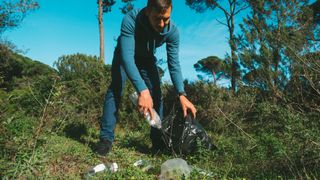
It's easier to be kind
Being kind to others is a good thing, but there are many forms of compassion, and the toughest is to be kind to yourself. It might sound like a motivational quote from Instagram, but we're so used to pushing forward and berating ourselves if we don't meet self-imposed high expectations. I'd always had a bit of this in me, but it became much worse when I got sick.
Before the illness, I was physically active, social, and tried to achieve a lot at work. In theory, nothing wrong with that. But then I found myself housebound, too unwell to see friends, and unable to work. Objectively, I knew I was ill, but it still felt like a personal failure. I constantly criticized myself for struggling through the day, never appreciating the small wins I was actually making.
Mindfulness meditation helped restore balance—I still struggle to make it through the day, but I am okay with that now. The practice enables you to focus on how things are right now, accepting what is rather than what you'd like it to be. If I wake up one day and feel in too much pain to go out, I can appreciate that's the situation I'm in instead of mentally punishing myself for it.
It's a technique that benefits others too. It's easier to interact with people when you aren't full of self-loathing. And while we don't all hold the same values or beliefs, by accepting people as they are, it's easier to show compassion to them too. My perspective on meat changed for similar reasons, so I invested in a few of the best vegan cookbooks and cut out animal products.
This shift has been one of the most transformative for me, so much so that I even got the words 'be more kind' tattooed on my forearm. It's a visual representation of how much meditation has changed my outlook on life and a reminder that if I have a tough day, I can still be kind to myself.
Here's how to start meditating
If you want to give meditation a try, you don't need expensive equipment, just a place to sit for a short time where you won't be distracted. To learn the basics, I found that Headspace worked well for me. It's a subscription-based app, though you can do a few free sessions if you want to test the water. There are many other smartphone meditation apps, but Calm is one of the most popular.
The Calm app has more free guided meditations than Headspace, including mindfulness exercises read by celebrities like Shawn Mendes, Camila Cabello, Pearl Mackie, and Matthew McConaughey. There are also plenty of free meditation resources like Stop Breath Think's YouTube sessions and short introductions to mindfulness.
Similarly, yoga instructor Adriene Mishler has many guided sessions available for free on her YouTube channel Yoga with Adriene, like this 10-minute Meditation for Inner Peace. If you're a fan of podcasts, then it's worth subscribing to the Daily Meditation Podcast for short guided sessions around specific topics each day.
Our five-minute morning meditation is also a great introduction to the practice and helps ease you into the day. And if you're feeling stressed and want to see whether meditation can help, give these three stress-busting mindfulness exercises a try. They're all free, and under 10 minutes, so it's a way to help calm your mind when you're short on time.

James is a London-based journalist and Fitness Editor at Fit&Well. He has over five years experience in fitness tech, including time spent as the Buyer’s Guide Editor and Staff Writer at technology publication MakeUseOf. In 2014 he was diagnosed with a chronic health condition, which spurred his interest in health, fitness, and lifestyle management.
In the years since, he has become a devoted meditator, experimented with workout styles and exercises, and used various gadgets to monitor his health. In recent times, James has been absorbed by the intersection between mental health, fitness, sustainability, and environmentalism. When not concerning himself with health and technology, James can be found excitedly checking out each week’s New Music Friday releases.
-
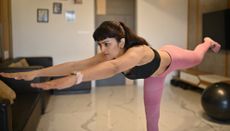 Wobbly ankles? These three moves will help you build the strength and stability you need
Wobbly ankles? These three moves will help you build the strength and stability you needWorkouts Embrace the wobble to develop stronger ankles and feet
By Camilla Artault Published
-
 A mobility expert says these five moves will make stiff shoulder joints feel smooth and "buttery"
A mobility expert says these five moves will make stiff shoulder joints feel smooth and "buttery"Feel-good movement Reverse the damage of hunching over your desk with this quick mobility workout
By Maddy Biddulph Published
-
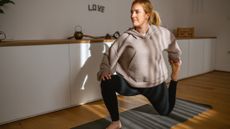 Is targeting the quads the best way to reduce back pain? I tried this yoga routine to find out
Is targeting the quads the best way to reduce back pain? I tried this yoga routine to find outYoga Yoga With Adriene's recent yoga flow is lower-body-focused, targeting the hips, quads, glutes, and hamstrings
By Alice Porter Published
-
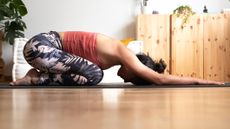 This expert-recommended tweak to child's pose is helping me undo the damage of my desk job
This expert-recommended tweak to child's pose is helping me undo the damage of my desk jobYoga If you spend a lot of time sitting down, you need to try this stretch
By Alice Porter Published
-
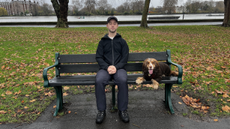 I did a one-minute deep breathing exercise every day for a month, and I didn’t think it’d be this effective
I did a one-minute deep breathing exercise every day for a month, and I didn’t think it’d be this effectiveMindfulness This short session calmed my mind and helped me breathe better during exercise
By James Frew Published
-
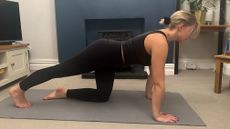 I tried this short yoga routine and it improved my mood and released muscle tension
I tried this short yoga routine and it improved my mood and released muscle tensionWorkout Just 15 minutes of movement can make a big difference
By Alice Porter Published
-
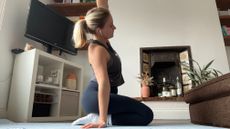 I tried this yoga for back pain routine and it immediately eased the tension in my upper-body muscles
I tried this yoga for back pain routine and it immediately eased the tension in my upper-body musclesYoga Four minutes of stretching can make a world of difference
By Alice Porter Published
-
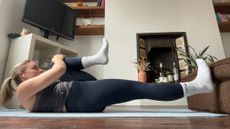 I tried this yoga flow instead of my usual workout and was surprised by how much it strengthened my core
I tried this yoga flow instead of my usual workout and was surprised by how much it strengthened my coreWorkouts This 30-minute routine put my mid-body muscles to the test
By Alice Porter Published
-
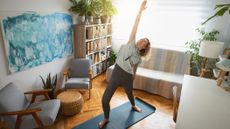 I did 15 minutes of yoga every morning for a week and it transformed my day
I did 15 minutes of yoga every morning for a week and it transformed my dayWellbeing You don’t have to spend hours exercising — I found just 15 minutes of mindful movement every morning gave my body and mind a huge boost
By Claire Munnings Published
-
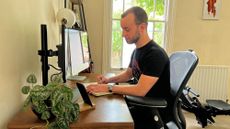 I tried daily journaling for a year to improve my wellbeing—here's what happened
I tried daily journaling for a year to improve my wellbeing—here's what happenedMindfulness Developing a daily journaling routine only took 10 minutes, but made a world of difference
By James Frew Published